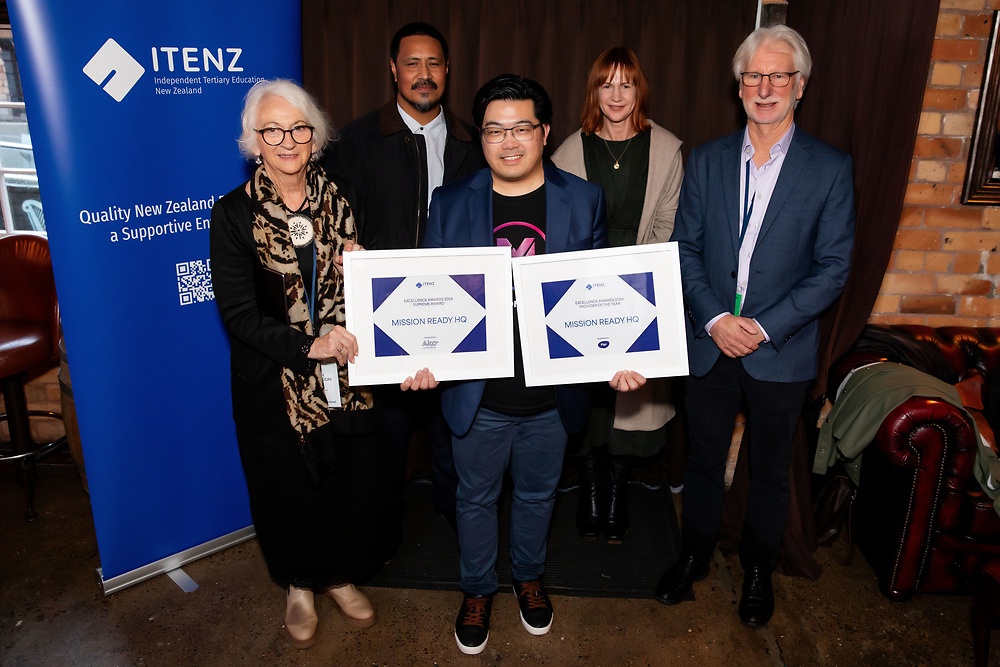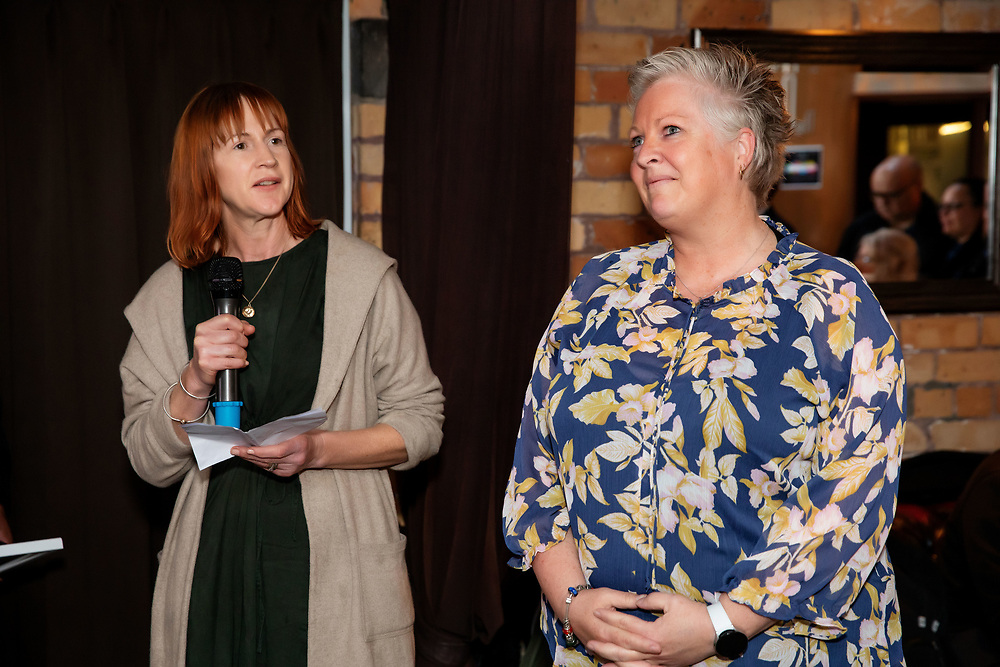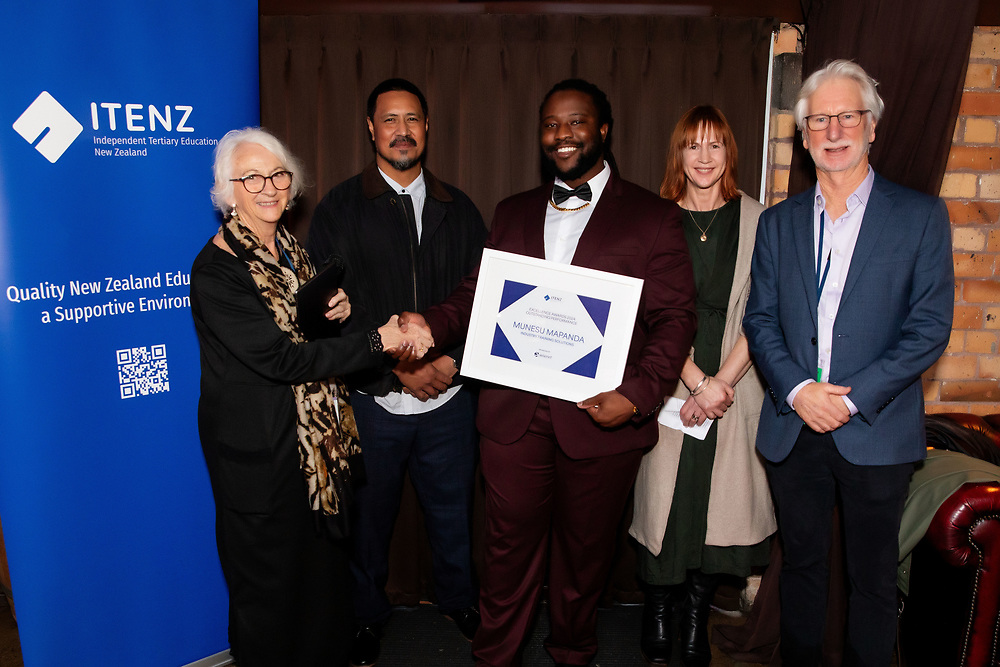International providers and education agents gain a lot from the 4th ITENZ International Education Forum
International education providers and agents gained valuable insights, ideas and connections from the fourth ITENZ International Education Forum.
The full-day forum, held at New Zealand School of Food and Wine in Auckland, included presentations from Sahinde Pale, Group General Manager International and Sector Engagement at Education New Zealand, who spoke about the new structure and focus of Education New Zealand, and Paul Millar, Engagement Partner - International Education, Immigration New Zealand, who gave an update on visa processing and procedures.
The panel discussion on Digital credentials and student mobility featured a very informative discussion on the trends, challenges and opportunities for verification of credentials with Dolly Seow-Ganesan (Manager Qualifications Recognition Services, NZQA), Richard Smith (CE, Auckland Institute of Studies), and Jeremiah Allen-Juric (Business Development Manager, My eQUALS).
The education agent panel shared insights on international recruitment across the top markets for New Zealand PTEs. It featured Arunima Dhingra (Aims Global and NZAMI Board Director), Jay Aranas (Right Education), Anelita Casquel (Viva Languages) and Anthony Xu (AGL).
The final activity, which is always a highlight, was the speed dating between agents and providers - a quick way to connect with multiple partners.
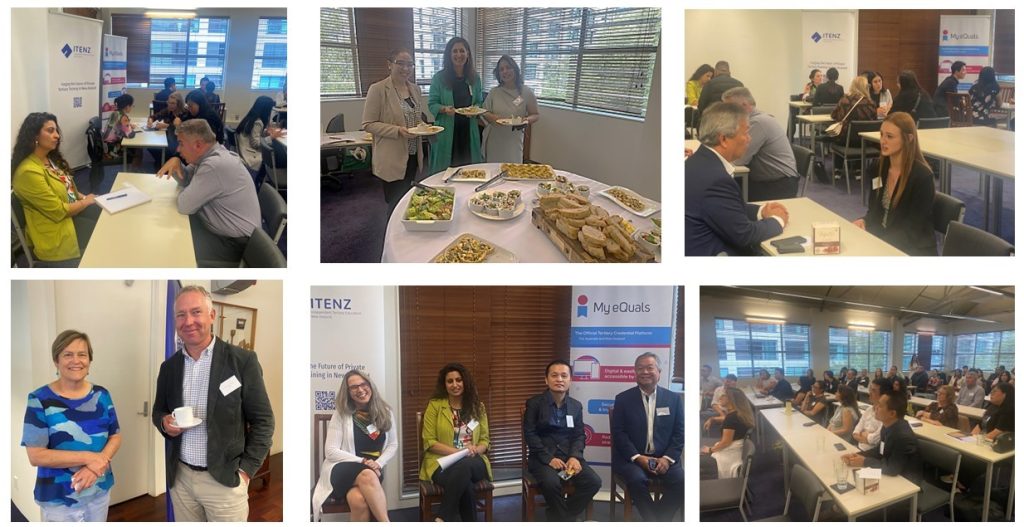
Programme for March 19th ITENZ International Education Forum finalised
ITENZ has finalised the programme for the fourth annual International Education Forum (IEF), which will be held in Auckland on 19th March.
The IEF brings together PTEs, government agencies and international education agents for a full-day of presentations, conversations, and networking.


It comes at a time when a new Minister, Hon Erica Stanford, has taken on the role of International Education, along with her existing portfolios of Education and Immigration, and when Education New Zealand has implemented a new structure and has a new focus. Attendees will hear more about these in presentations from Education New Zealand and Immigration New Zealand.
A highlight of the IEF is the speed dating session, which gives providers the opportunity to brief agents and promote their programmes, as well as to better understand the markets agents represent.
A panel discussiuon will provide more insights from agents representing a range of markets..


The IEF is open to both ITENZ members and non-members.
The full programme and registration details can be found here.
Hon Erica Stanford to take responsibility for International Education
Hon Erica Stanford will be the new Minister with responsibility for International Education, including for the Crown Agency, Education New Zealand Manapou ki te Ao (ENZ).


ITENZ has long advocated for closer alignment between immigration policies and international education and we look forward to working with the Minister, who now has responsibility for both areas, to enable growth in the International Education sector.
Minister Stanford also holds the portfolio for Education
Emily Cordwell and Jon Smith elected to the ITENZ board
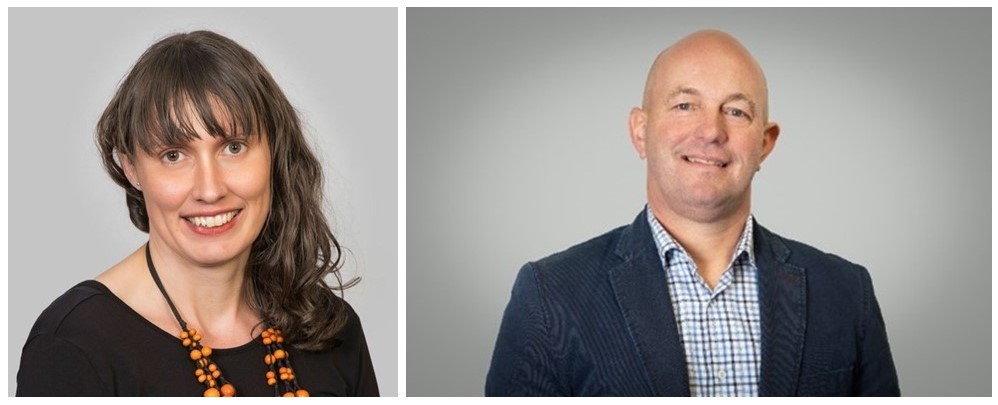

We are pleased to welcome two new members to the ITENZ board, Emily Cordwell and Jon Smith.
Emily is an educational leader and manager with experience in both New Zealand and the United Kingdom. In 2023, she joined AsureQuality, a state-owned enterprise, to lead its PTE and is responsible for the commercial viability, growth, and quality assurance of the AsureQuality Academy, which offers over 130 courses across primary industries, food safety, meat processing, and environmental sectors. She works closely with external stakeholders such as NZQA, Workforce Development Councils, TEC, the Ministry for the Environment, and MPI.
Emily is passionate about education and making it accessible for all, leveraging the latest technological advancements. In 2022, she completed a four-year, part-time Master’s in Digital Education with Massey University, focusing on the motivation and engagement of adult learners in online environments. She is currently studying Te Reo with the Open Polytechnic.
Jon’s is General Manager Quality Assurance at Ignite and across the Skills group. He is an established and proven senior strategic academic leader with over twenty years' experience within further and higher education, and the learning and training sector, having worked intensively with domestic and international learners. He is highly experienced with a range of international educational qualification structures, awarding bodies, standards, and associated quality frameworks and systems.
His previous roles at NZQA, Northable, NorthTec and various roles in the UK have allowed him to work in a range of multicultural environments in different countries with learners, staff, employers, and industries. These experiences have provided a solid understanding and deep appreciation of stakeholder needs, capabilities, challenges, support requirements and the social disadvantage that learners may encounter whilst in education and training.
Jon was actively involved with Reform of Vocational Education (RoVE) work streams in his previous roles at NZQA and Senior Leadership roles within the ITP sector. Jon has been an NZQA External Evaluation Review (EER) team member conducting EER and Targeted Evaluation Reviews (TER) across the sector. He is passionate about quality assurance and continuous improvement.
ITENZ recognises the outstanding work of members with the 2024 Excellence Awards
|
ITENZ partners with Rothbury Insurance Brokers
ITENZ and Rothbury Insurance Brokers have partnered to provide ITENZ members with a streamlined option for all of their insurance needs.
Members will benefit from dedicated direct contacts, updates and informational webinars, as well as from some additional funding for membership activities, gained through a share of any commissions. Over time, Rothbury will develop a strong understanding of the insurance needs of PTEs and the best products and services to support them.
Brigitte Windsor, General Manager, Partnerships and Facilities says, "We’re delighted to be in a new partnership with ITENZ and look forward to establishing a great working relationship with your members."
Rothbury have been in business since 1950 and have helped protect the assets of over 53,000 Kiwis and businesses over the last year and across 25 locations nationwide.
"As the third largest Insurance Broker in New Zealand, we pride ourselves on providing personal service and quality advice, which is more important than ever amid the economic and environmental factors currently influencing personal and business insurance."
"We’re are looking forward to working with members of ITENZ to review their current insurance arrangements ensuring they have the right cover in place to protect their business and assets.
We also offer customised Employee Benefits plans for staff engagement and retention as well as looking after your own personal home, contents, motor and private marine insurances. All of which will go towards helping ITENZ provide the best membership benefits.
All of our branches have dedicated Claims Advisers to manage the entire claims process and advocate on the client's behalf for the best possible outcome.
For further information, contact admin@itenz.co.nz


Ministry of Education research highlights quality of PTEs
A recently published MoE report on the results of the External Evaluation and Review (EER) process from 2010 to 2022 shows that PTE quality is continually improving across all of the areas measured.
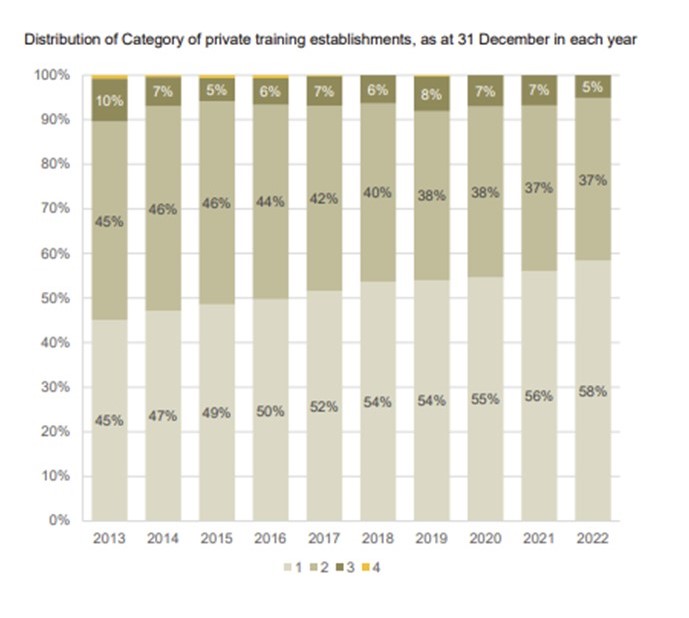

The report analyses category ratings, statements of confidence and Key Evaluation Question (KEQs) ratings and provides some insights into factors that affect quality ratings.
A similar report on the public ITP sector was published in 2023
AI expert and diversity advocate, Dr Mahsa McCauley, to be featured speaker at the 2024 ITENZ Conference
Dr. Mahsa McCauley is a respected Senior Lecturer and the Director of Women in Tech at Auckland University of Technology, School of Computer, Engineering, and Mathematical Sciences. With a strong expertise in AI and machine learning, she is widely recognized as a leader in her field.
Mahsa will be a featured speaker at the 2024 ITENZ Conference in Auckland


Passionate about promoting diversity and inclusion in the technology industry, Mahsa is the founder of She Sharp, a charitable trust dedicated to empowering women in technology through networking and learning opportunities. Through She Sharp, she actively encourages young girls in New Zealand to explore the exciting possibilities of pursuing careers in technology.
Mahsa's efforts to bridge the gender gap in tech have earned her numerous accolades. She was honored as the Emerging Leader category winner in the 2013 Westpac Women of Influence Awards and was a finalist for the prestigious 2018 Kiwibank New Zealander of the Year. In recognition of her commitment to equal pay, she received the Champion Award at the 2019 YWCA Equal Pay awards. Her outstanding contributions have also been acknowledged with the Massey University Distinguished Alumni Award in 2020.
Additionally, Mahsa's dedication to cybersecurity and her invaluable contributions earned her the Unsung Hero Award at the Women in Cybersecurity awards in 2023. Her multifaceted achievements and tireless efforts to create positive change exemplify her unwavering commitment to championing women in technology and fostering an inclusive industry.
PTEs deliver a wide range of qualifications and training across New Zealand
New Zealand’s Private Tertiary Establishments (PTEs) provide a wide mix of quality education options for hundreds of thousands of domestic and overseas learners each year.
There are 381 registered PTEs with over 1,300 sites throughout the country. Just over half of these are funded to deliver New Zealand Qualifications Authority (NZQA) approved qualifications.
Research commissioned by ITENZ found that during 2022:
- PTEs offered 1,665 different programmes to learners, leading to 800 qualifications
- PTEs arranged training for 16,975 industry-based apprentices and trainees, accounting for approximately 11 per cent of all industry-based learners
- 52,440 learners were enrolled in funded PTEs – 92 per cent were domestic students and eight per cent were fee-paying international learners
- 2,310 international students were enrolled at unfunded PTEs – including 1,565 at English language schools (ELS)
- Hundreds of thousands of learners also participated in other programmes at PTEs, including non-formal learning and/or on-the-job training and courses shorter than one full week (e.g., first aid or workplace health and safety)
- The 184 funded PTEs employed 6,850 staff. However, total staff numbers including unfunded PTEs may be double this number
Research shows NZ Private Tertiary Establishments deliver a quality experience for learners
New Zealand’s Private Tertiary Establishments (PTEs) are delivering a quality education experience for domestic learners and international students that adds considerable value to learners, the workforce and the economy. A major new study, commissioned by Independent Tertiary Education New Zealand (ITENZ), conducted by NielsenIQ, and with support from Education New Zealand found that:
- PTEs perform at a similar level to universities and wānanga on qualification completion rates and better than institutes of technology and polytechnics (ITPs)
- NZQA’s external evaluation and review process (EER) places 95 per cent of PTEs in category 1 or 2, indicating high confidence or confidence in their educational performance
- 91 per cent of PTE international students rate their experience as positive
- Māori learners at PTEs outperform those in ITPs on qualification completion overall, at all levels except post-graduate
- Pasifika learners at PTEs achieve higher qualification completion than all other types of tertiary provider.


